Solved: How to Monitor a Folder or Drive in Windows 11/10/8.1/8/7
Windows 10 Professional and Enterprise editions provide Group Policy built-in tool to help users monitor views and changes to specific files,folders, applications and drives. If you have one or more private folders, you may need to know who is accessing or performing actions in that folder. The following steps will show you how to monitor a folder or drive in Windows 10/8/7 using Group Policy.
Step 1: Press Win + R keys to open Run, type GPedit.msc and click OK.
Step 2: Expand Computer Configuration Policies and navigate to Windows Settings > Security Settings > Local Policies.
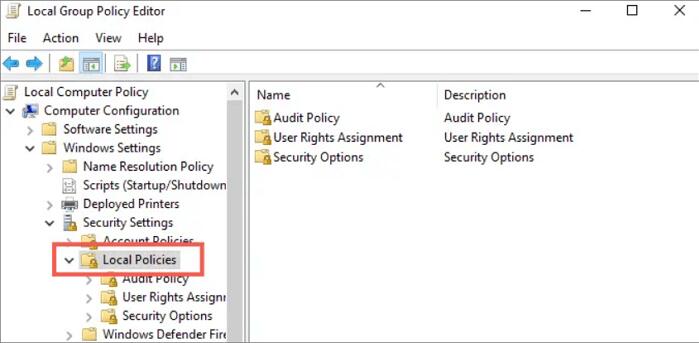
Expand the Audit Policies folder.
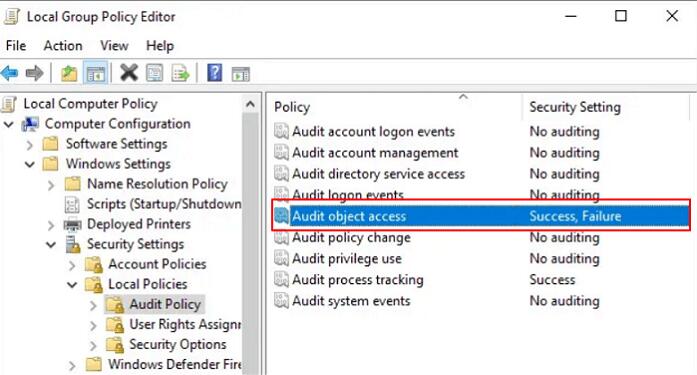
Step 3: Click to check the Success and Failure boxes if you want to monitor successful and failed changes to the folder.
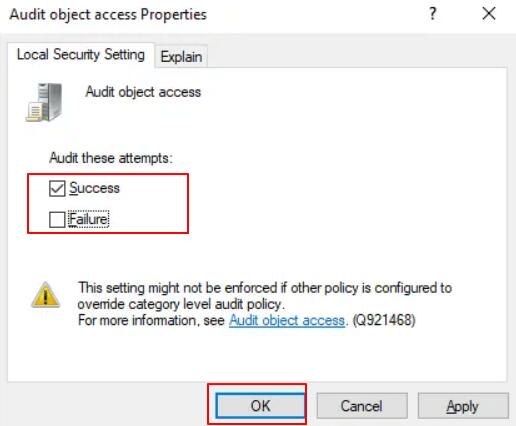
Step 4: Right-click on the folder and open its Properties. Move to the Security tab and click the Advanced button. In the window that appears, switch to the "Auditing Tab" and click the "Add" button to add a user group.
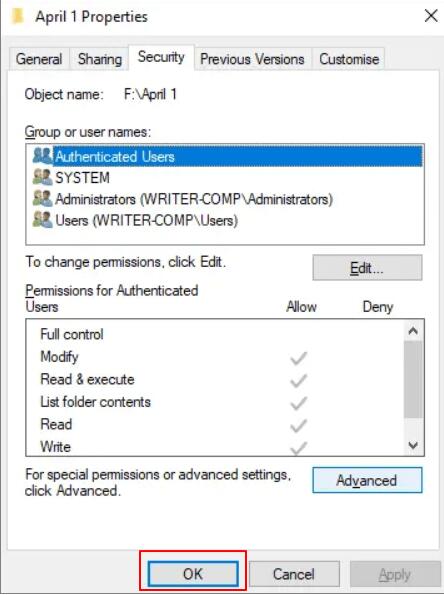
Step 5: Select the PC name user and click OK.
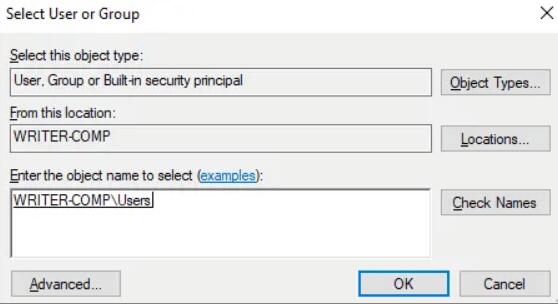
Step 6: This will direct you to the "Audit entry for [folder name]" to select exactly what you want to monitor.

Under Type, select Track Success or Failure, select Folders, Subfolders, and Files to monitor changes to all folder contents.
Step 7: Open the Event Viewer. In the Windows search box, type "event viewer" and open the tool from the results. Go to "Windows Logs", then "Security". This will open a list of recent activities on the middle panel.

Step 8: To see more details about the event, double-click the event and switch to the Details tab.

